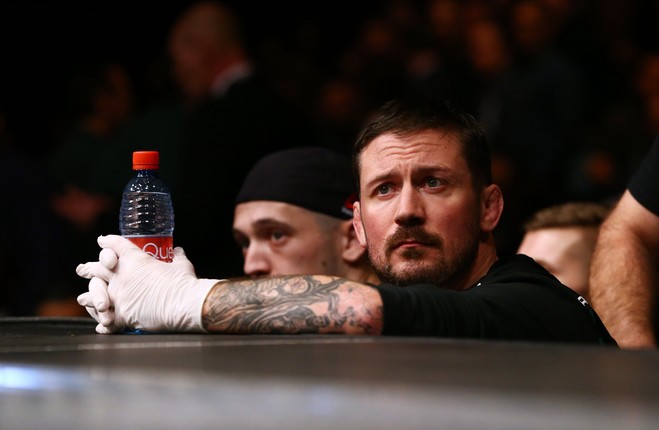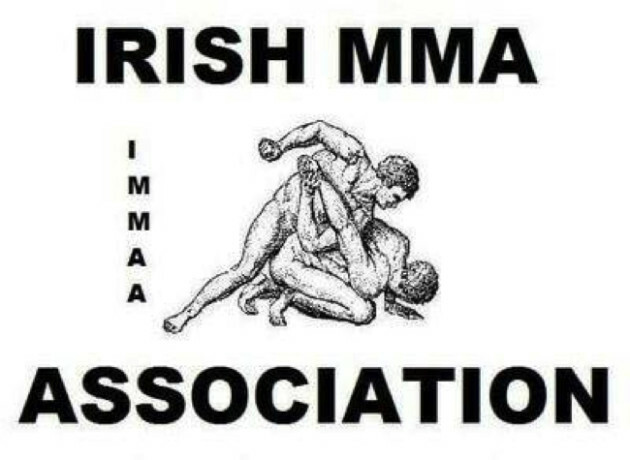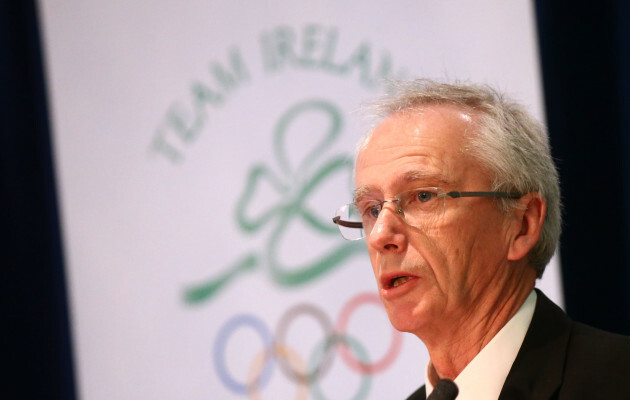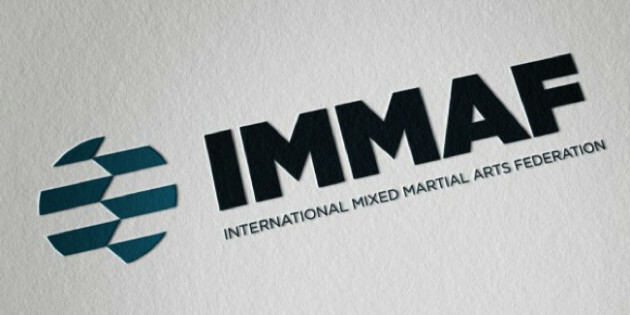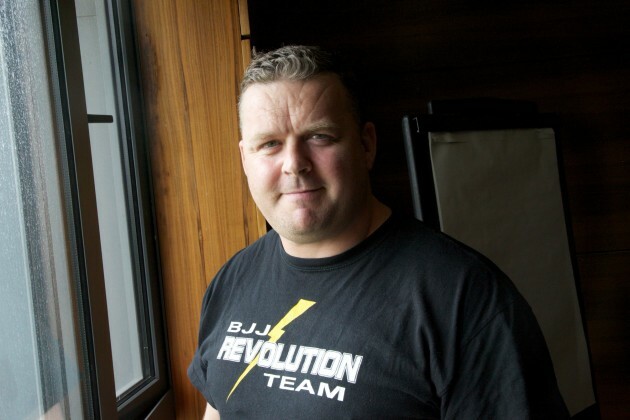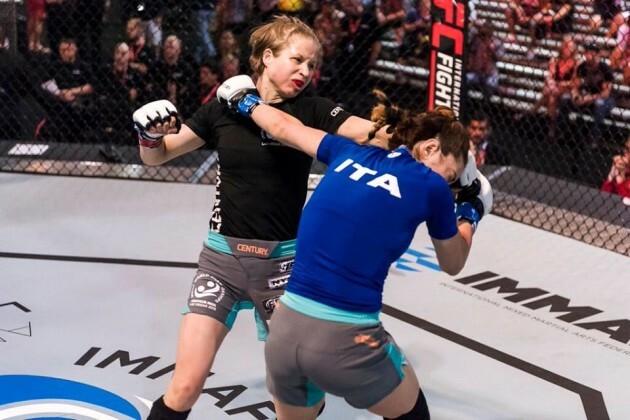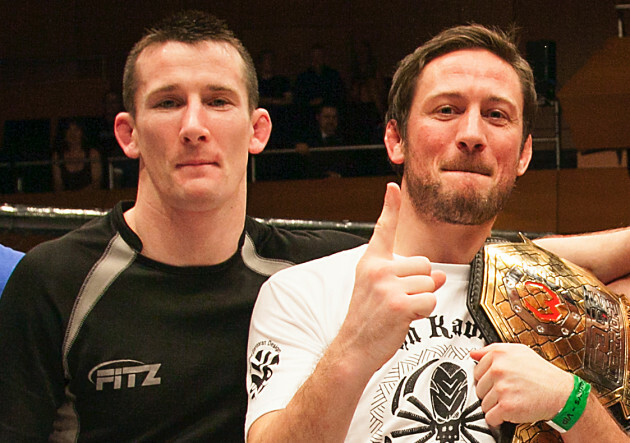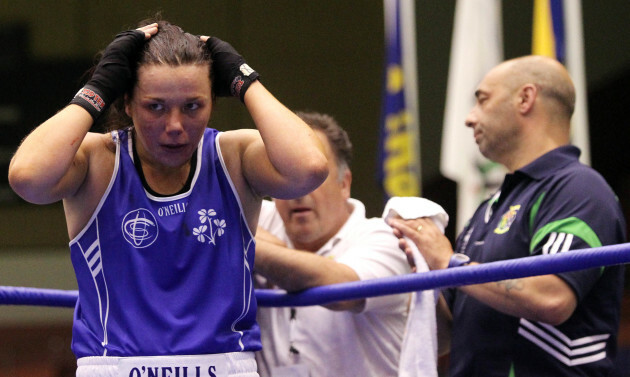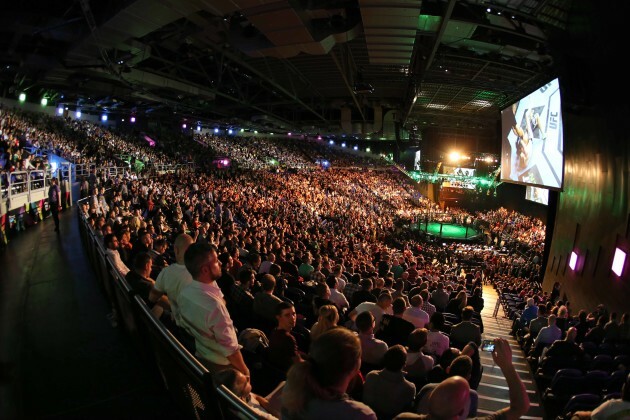THE TRAGIC DEATH of Joao Carvalho accelerated the process, but John Kavanagh insists that the recent changes to mixed martial arts in Ireland were in the pipeline nevertheless.
It was announced last week that the Irish Amateur Pankration Association [IAPA] — which previously represented MMA in Ireland — will be rebranded as the Irish Mixed Martial Arts Association [IMMAA], with the intention of creating a national governing body [NGB] to regulate MMA in this country under the umbrella of Sport Ireland.
The move comes just over a month since Joao Carvalho passed away after sustaining head injuries while competing in an MMA bout in Dublin. Amid calls for the regulation of the sport in Ireland in the aftermath of Carvalho’s death, attempts to establish a governing body represent a hugely significant step in the right direction.
More commonly known as the head coach and owner at Straight Blast Gym in Dublin, John Kavanagh currently serves as president of the newly-formed IMMAA, with several other long-standing members of the Irish MMA community — including Andy Ryan, Paul Cowzer and Owen Roddy — also part of the committee.
As a subsidiary of the International Mixed Martial Arts Federation [IMMAF], the international governing body for amateur MMA, IMMAA will immediately adopt IMMAF’s rules and guidelines for all amateur bouts in Ireland, as well as acting as an advisory body for promoters intending to stage amateur events here. This will involve IMMAA-controlled medical checks for fighters, making recommendations for the appointment of referees and judges, and having all athletes and clubs registered to IMMAA.
Among the rule changes for amateur bouts are same-day weigh-ins, as opposed to day-before, compulsory use of shinguards and rashguards, and more stringent medical requirements and examinations. These changes may not have a direct impact on MMA in Ireland at professional level, but they do represent an important step along the way towards the establishment of a governing body and commission which would ensure that the highest standards are being adhered to.
John Kavanagh has spoken exclusively to The42 to explain more about what has changed in recent weeks and what still needs to change over the coming months and years…
The42: What is the current status of IMMAA? Has anything progressed since last week’s announcement about your intention to become a national governing body?
John Kavanagh: “The first stage was basically us making contact with the NGB section of Sport Ireland. That initial contact has begun, just to let them know what our intentions are — that we’re setting about to become the national governing body for mixed martial arts in Ireland. It’s not an overnight process. We’re talking about a minimum of three years but we’re projecting for five years. All the people who are on the committee are volunteers. Nobody is being paid. Everyone involved has separate full-time jobs so this is being carried out on a part-time basis. We’re talking about a long-term project here.
“The sport of mixed martial arts is bigger than any one athlete. We’re trying to lay down strong foundations for the next couple of generations of fighters. We’ve done step one. Sport Ireland are aware of us and the process has started. We have to meet their criteria and that’s a long, thorough process.”
The42: Previously it appeared that the government and Sport Ireland had been keeping MMA at arms’ length. Has their stance now changed?
JK: “I can see Sport Ireland’s point of view, in that they’re dealing with a lot of different martial arts. For example, if you wanted to set up a table-tennis NGB for Ireland, it’s going to be straightforward. You’re affiliated to the World Table-Tennis Federation, or whatever it may be, and that’s it. There’s not another organisation coming in and saying, ‘Well, we do table-tennis too but with two bats per player instead of one’, or some other variation. It’s table-tennis and that’s it.
“But if you don’t have a good understanding of martial arts, I can completely understand why Sport Ireland would be scratching their heads. You could end up with the Tai Chi Association, Wing Chun, Shaolin Kung Fu… there’s a myriad of different martial arts out there and each one, in its own right, may want to have its own national governing body. And I can see why that could be a headache for Sport Ireland. They would rather it to be just the one but that’s just not the case. Martial arts has so many different combat sport forms, mixed martial arts being one of the newer ones — arguably the biggest one — but it is just one of many forms of combat sport, so we have to show Sport Ireland that we’re more organised than a group coming in and just being a random martial art group with a small combat sport outlet for that style of martial arts, which could be active in maybe only four or five countries around the world.
“But if you look at MMA, what IMMAF have done over the last couple of years in over 50 nations, soon to be holding their second world championships with double the numbers from the first one, they’re a serious operation. It’s not Sport Ireland’s responsibility to understand what we’re doing, that’s on us to show them. We have to show them that we’re a legitimate sport and that we do have support from a large international body.”
The42: There has been some criticism from within the MMA community that these rule changes are a kneejerk reaction to an isolated incident. How do you respond to those claims?
JK: “I can understand where people are coming from with that but these changes were coming anyway. It was a weird situation for amateurs in this country where you compete at home under one set of rules, but then you have to fight under another set of rules entirely if you want to become the world champion with IMMAF. If we’re the national association for this international sport, we have to follow their direction. IMMAF has huge support as the international body for MMA, including from the UFC, and if we’re a member of that organisation, we have to adopt their rules and regulations.
“It’s pointless to have one set of rules in Ireland, one in the UK and another in Spain, Russia or wherever. We all compete under the same rules and regulations, both nationally and internationally. It’s the same with boxing. When the IABA have amateur tournaments in Ireland, the rules are the same as what they are for the international tournaments. Changing the amateur rules, while it probably was sped up by that incident, that’s not the reason for it. We’re following the international rules and regulations, which was always the ultimate intention anyway.”
The42: You mentioned that the governing body may take up to five years to establish, but will these new amateur rules be implemented immediately?
JK: “That comes into play from now. With immediate effect, athletes from all 35 IMMAA member clubs in the Republic of Ireland will now compete under the new amateur rules. Any promoters that contact us, looking to put on amateur fights, we will support them and encourage our member clubs to support them if they’re following the rules as laid down by IMMAF. As a national association under IMMAF, we have to follow their rules and regulations.
“No promoter is obliged to do that. There are no laws about this yet. A promoter can run a show whatever way they want. They may find difficulty in getting a venue and getting insurance, but they can — in theory — run the show the way they want. However, that show will not be supported by IMMAA or its members. In saying that, no promoter has shown any opposition to this. They’re all on board with IMMAA from what we’ve seen to date. There’s been no resistance.”
The42: One criticism of the new amateur rules is that there’s too much of a distinction between that set of rules and professional rules. There’s concern that the gulf between amateur and professional competition is now too big, making the step-up more challenging for amateurs looking to make their professional debuts. What’s your take on that?
JK: “The closest example of a combat sport with such an amateur/professional divide is boxing. Significant rule differences exist there and there is no expectation that an amateur boxer will progress to become a professional. The majority of amateur MMA fighters at the moment will never take part in a professional bout. As the sport continues to grow, a smaller number of participants will be aiming to achieve professional status. By bringing in these rules, IMMAA will be adopting the highest international standards when it comes regards to athlete safety, and the progression and furthering of the growth of the sport at grassroots level.
“There’s a flawed way of thinking in MMA at the moment — that you do grappling tournaments, MMA league fights, amateur fights and then you’re on to professional fights. But, like boxing, not everybody is going to turn professional or even want to. Professional and amateur boxing, while similar in some ways, are very different in a lot of senses. If you were to compare the number of people who have an amateur boxing bout and then a professional boxing bout, it’s probably one in every 10,000 or something like that. A lot of kids, from 12 to 20, who were in an amateur boxing club would have done a couple of fights and then just carried on with their lives. For some reason we just have this expectation in MMA: ‘Oh, you’ve had three or four amateur fights, when’s your pro debut?’ They’d look at you as if you had 10 heads if you said that in a boxing environment.
“I read during the week that Aaron McKenna, a 16-year-old Irish boxer, is having his first professional bout in July… but that’s after he’s already had over 150 amateur bouts. Amateur boxing is a fantastic sport. If you look at it, it’s kind of more about speed and technique. And the athletes, they can do a week-long tournament, competing every day in order to win a medal. That’s the mindset we have to bring into mixed martial arts — that amateur MMA is different to professional MMA.
“The vast majority of people are only ever going to compete in amateur MMA and we want them to get to the stage where they have the same level of competition, the same number of bouts, that an amateur kickboxer or boxer has; have 20, 30, 40, 50 competitions a year under these IMMAF rules. In the long-term, it’s only going to lead to a better skillset because the more you compete, the better you’re going to get. But also when you complete that cycle, there’s no onus on you to turn pro, as in the case in boxing. Regardless of your experience as an amateur boxer, moving up to the pro ranks is a huge decision with many considerations. The mindset has to change in MMA. It’s time for the sport to mature and grow.
“Fighters wearing rashguards has been a strange point of contention, as guys seem to prefer fighting with no tops on. But if that’s the best reason you can come up with to oppose this, I’d find it hard to take you seriously. If a spectator is not an expert, they’re watching a show and then a change from amateur to professional happens from one fight to the next, they might not know the difference. The differences are small. But like amateur and pro boxing, it’s a very visual thing in terms of the distinction. They were vests in amateur boxing, in MMA it’s going to be rashguards. The shinguards will also contribute to the visual difference. There’s also the possibility that the amateur guys will be able to get sponsors on their rashguards or promote their gym, stuff like that.
“But the number one reason is that it creates a clear, visual difference between amateur and professional. Guys have to start accepting and understanding the difference between amateur and pro, and being proud of their status as one or the other — just as our boxers are. Not everybody turns pro or goes to the UFC, and not everybody wants to.”
The42: Another reason for criticism from within the MMA community has been that the additional costs that will arise from increased medical standards could convince some fighters — in order to start earning money from the sport — to make the move to the professional ranks sooner than they’re perhaps prepared for. Would that be a concern?
JK: “I don’t really understand where that argument comes from because with the medical standards there are going to be at professional level now, it will cost you thousands to get a licence. There are pre-fight brain scans, eye tests… there’s a lot that’ll be involved in being a professional fighter. The medical costs at amateur level are far less than pro so that argument doesn’t really stack up. But hopefully the clubs are being run by responsible coaches who will guide their fighters.
“Again, going back to amateur boxing, there are costs involved in medicals for competing there as well so there’s not a major difference. No matter what sport you’re playing, there are expenses involved in competing. If a coach saw costs as justification for bumping an amateur fighter up to pro, that would be very weak and worrying logic. Putting somebody in at that level who’s not ready would be an irresponsible thing to do and, as I said, the costs are significantly greater at pro level anyway. Being fast-tracked into the professional MMA arena because you want to save money is a ridiculous argument.
“People are going to have to realise, and I keep coming back to this, that we had things a certain way for a very long time — and I’ve been at it longer than anybody in Ireland, almost 20 years — but just because something was done a certain way for a long time doesn’t mean it’s the best way to do it. Now is the time for change and the changes are long overdue.”
The42: What about the belief that the increased standards will lead to fewer shows and, therefore, fewer fighters?
JK: “No, I think it’s actually going to lead to more competition because if you’re competing under the old set of amateur rules, you could potentially get a lot of heavy knee-strikes to the head, shin-on-shin clashes… You’re taking a lot more damage in every contest.
“There’s also the ridiculous scenarios where fighters are cutting five or six kilogrammes during fight week because there are day-before weigh-ins. It’s worth emphasising that there have been some crazy weight-cuts going on at amateur level. This is a non-paid amateur sport and guys are really putting themselves at risk, without having the expertise or the ability to do what highly-paid professionals are able to do, in terms of monitoring by doctors and proper rehydration. They’re cutting massive amounts of weight and then competing when they can get kneed in the head, which can be quite dangerous. Same-day weigh-ins will encourage guys to be closer to their natural weight so they’re less likely to take risks. Then they can just worry about improving their skillset, not their ability to cut as much weight as is humanly possible.
“Factoring all of that in, you might only end up having two or three fights a year. The previous amateur rules are very close to professional rules so there’s a long recovery time in between fights. But from now on, guys can compete more regularly because they’re taking less damage — upgrade the software without damaging the hardware, as we so often say — and we hope to see an actual increase in the level of competition once things settle down and the promoters get the hang of the new system. Any time there’s change, there’s going to be resistance. But once this gets going and is accepted, and people begin to understand it, it’s only going to be seen as a positive.
“This is a changeover period and it’s common for humans to resist change. But it’s important to remember that everybody wants the same outcome here. We’re all in this together. There’s no conspiracies or ulterior motives. Nobody is trying to ruin the sport. This is my passion, my only real passion. I want to make sure it’s safe and accessible for everybody, and that there’s a sensible difference between amateur competition — where people are not getting paid — and the professional ranks, where things get a lot more serious. Everybody is pulling in the same direction and all are welcome to become part of IMMAA.
“The people pulling the strings for MMA at the moment, myself included, are forming what we’re calling ‘an establishing committee’. It was put together by a group of some of the longest-serving members of the MMA community from around Ireland. The committee was formed in order to get the ball rolling but we’re a democratic association — which you have to be to be an NGB — and once the association is fully formed and once we get some traction with what we’re doing with Sport Ireland, we will be holding an open election and all member clubs will be eligible to run for any of the roles within the association. But we couldn’t have elections for an association without establishing that association first. There has to be a chicken before there’s an egg. We have a lot of work to do first to get to a point we’re we actually have something to vote on, but that will come in time.”
The42: If and when the NGB comes into existence, will promoters be prevented — by law — from staging MMA events in Ireland which are independent of IMMAA?
JK: “Yes, it will be illegal. We are aiming to replicate the model created by the Swedish Mixed Martial Arts Federation [SMMAF]. If you want to do anything relating to MMA in Sweden, you must have approval from SMMAF. Otherwise it’s illegal. That’s the status we’re looking to get IMMAA up to in time. Like I said, it’s a three-to-five year process, but that’s our goal.
“We don’t have that power right now. All we can do is recommend and use our collective weight to exert our influence. By not giving a show our recommendation or seal of approval, we can make it difficult for a non-IMMAA promoter to source available fighters. Most of the competitive MMA clubs in the country are already part of IMMAA. But we’re not able to ban or stop a show. When we do have our full NGB status, that is our eventual goal — to fully control the amateur and professional elements of mixed martial arts in Ireland.”
The42: So becoming a commission that oversees professional MMA, like we see in Sweden and in each state in the US, is also the aim?
JK: “Yes. There’s no point having two separate groups — one for amateur MMA, one for professional. The number of professional shows will be small. You’ll have the UFC maybe once a year, BAMMA and perhaps one or two other shows as well, I’m not sure. But yes, we will be the commissioning and regulatory body for amateur and professional MMA. We’re heavily leaning towards copy-and-pasting the SMMAF model in Sweden. We have a good line of communication with them and they’ve been very helpful.”
The42: In terms of how professional shows in Ireland will be handled in the meantime, what will IMMAA’s approach be? Take the BAMMA show at the 3Arena in September, for example. What standards will they be required to adhere to, if any at all?
JK: “What BAMMA are doing for that show is mirroring the UFC. When the UFC come to a place like Ireland where there is no existing commission, they impose upon themselves an extremely high standard of rules and regulations. BAMMA will mirror that. We will shadow-commission them, even though we’re not officially a commissioning body yet so we don’t have any powers in that regard. But you have to start somewhere and we’re starting with shadow-commissioning.
“BAMMA’s pre-event medical standards will match the UFC’s, with the pre-fight and post-fight medicals on the night also mirroring the very high standards that are imposed on the UFC by the state athletic commissions in America.”
The42 is on Snapchat! Tap the button below on your phone to add!
